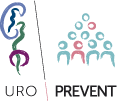Basic Information
Human Immunodeficiency Virus (HIV) is the virus causing the Acquired Immune Deficiency Syndrome (AIDS). HIV acts by damaging the cells of the immune system (CD4+ T lymphocytes), which play a major role in protecting the body organism from infections and other diseases.
It can be transmitted through sexual contact (anal, vaginal, oral) without protection or by sharing sharp objects (razors, needles, syringes) with an HIV seropositive person. It can also be transmitted from an HIV-seropositive mother to the fetus during gestation or delivery and to the neonate through lactation (breastfeeding).
HIV is NOT transmitted with daily social contact (handshakes, hugs, kissing on the cheek), mosquitoe or other insects' bites, saliva, tears, sweat, air, water orsharing kitchen utensils with an already HIV-infected person.
The term AIDS refers to the final stage of HIV infection, when the immune system has weakened to such a severe degree that the HIV seropositive person is susceptible to numerous diseases and specific types of cancer.
The time intervening between the onset of HIV infection and the AIDS manifestation varies from person to person. However, the early on-time administration of a Highly Active Antiretroviral Therapy (HAART = combination of three or more anti-HIV drugs) significantly slows down the progression of the disease and reduces mortality to a great extent. Today, HIV infection is considered to be a chronic disease, under the precondition that the patient is on systematic therapy.
So far, no effective prophylactic vaccine against HIV has been found. Yet, high importance is placed on the substantial role played by the antiretroviral therapy in prevention, for HAART reduces the viral load in infected biological fluids and, thus, reduces the probability of HIV transmission.
For further information, visit the website of the Disease Control & Prevention Center (ΚΕΕΛΠΝΟ). Click HERE
REFERENCE & CONTROL CENTERS for AIDS
ATHENS
REFERENCE CENTER FOR AIDS / CELL-MEDIATED IMMUNITY, 'EVANGELISMOS' GENERAL HOSPITAL, Department of Immunology -Histocompatiblity
Tel: 213 2041242 /Fax: 210 7211022
NATIONAL REFERENCE CENTER FOR SEXUALLY-TRANSMITTED DISEASES & AIDS, VENEREAL & SKIN DISEASES, "ANDREAS SYGGROS"
Tel: 210 7249025, 7249026 /Fax: 210 7243579
AIDS NATIONAL REFERENCE CENTER OF SOUTHERN GREECE, NATIONAL SCHOOL OF PUBLIC HEALTH
Tel: 213 2010388 / Fax: 210 6467473
NATIONAL RETROVIRUS REFERENCE CENTER (N.R.R.C.), DEPARTMENT - DEPARTMENT OF HYGIENCE , EPIDEMIOLOGY & MEDICAL STATISTICS, MEDICAL FACULTY, UNIVERSITY OF ATHENS
Tel: 210 7462090 / Fax. 210 7462190
THESSALONIKI
AIDS NATIONAL REFERENCE CENTER OF NORTHERN GREECE - MICROBIOLOGICAL LABORATORY, ARISTOTLE UNIVERSITY OF THESSALONIKI (A.U.Th.)
Tel: 2310 999177 Fax: 2310 999149
PATRAS
AIDS NATIONAL REFERENCE CENTER OF SOUTH-WESTERN GREECE, "AGIOS ANDREAS" GENERAL HOSPITAL OF PATRAS
Tel: or 2610 227976
CRETE
AIDS NATIONAL REFERENCE CENTER OF CRETE, "VENIZELIO -PANANIO" GENERAL HOSPITAL OF CRETE
Tel: 2810 368482, 368042
ALEXANDROUPOLI
AIDS REFERENCE CENTER OF ALEXANDROUPOLI
Tel: 25510 20 403, 26810 / Fax: 25510 26213


